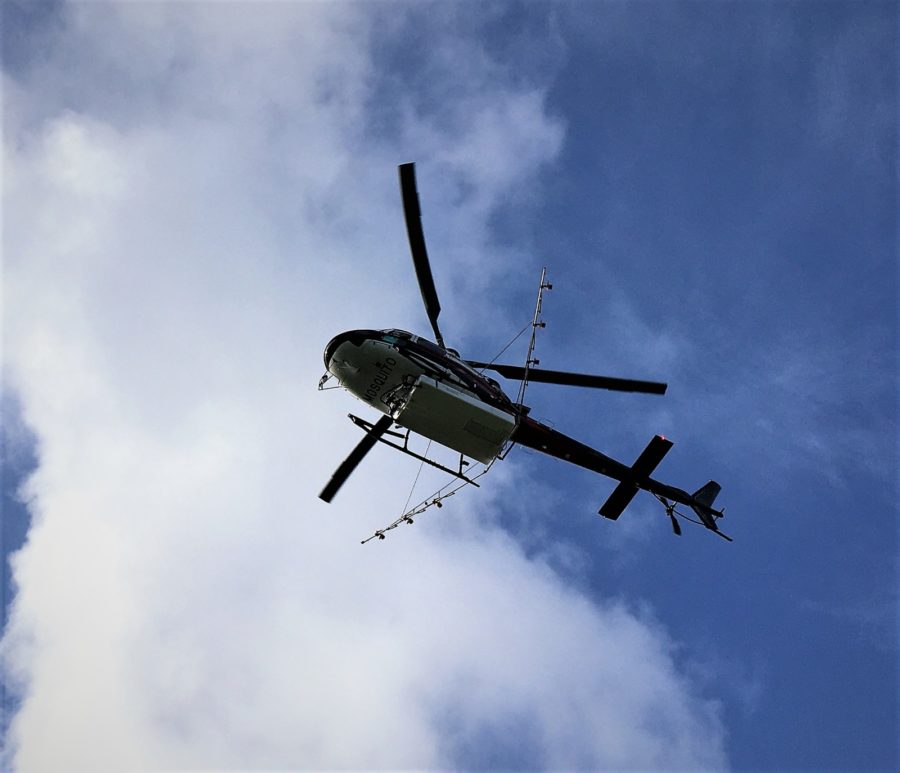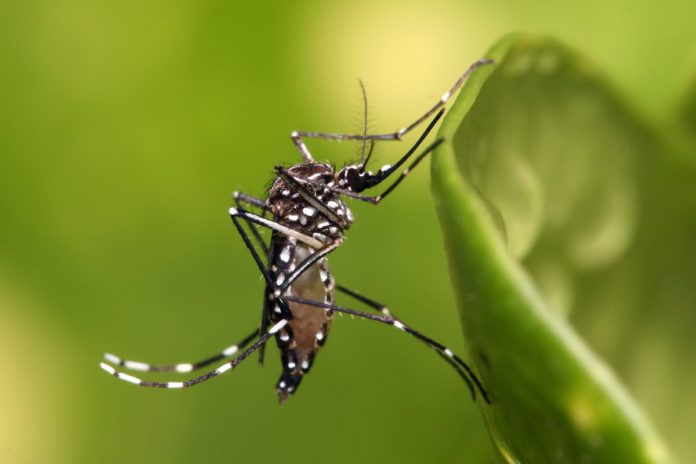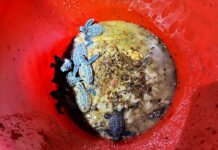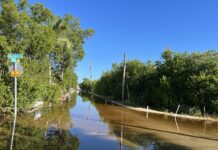Every day, mosquito control field inspector Ryan Rodriguez literally invites mosquitoes to settle down on him so he can conduct what is called a landing rate count. Rodriguez does this at six different locations in the Upper Keys, starting at 7 every morning.

“You have to shake up the bushes, you stand there for a whole minute and you see how many mosquitoes land on you,” said Rodriguez.
We caught up with the Florida Keys Mosquito Control District inspector at a monitoring site at MM 94, in the thick brush leading into the Sunset Gardens neighborhood. We watched as six mosquitoes landed on him within a minute.
“Depending on how many mosquitoes you have on you kind of determines what you do throughout the day,” he said. “If you have a very high count in one area that must mean that there’s either a swamp nearby that’s breeding, we have to go check that area, so on and so forth.”
Rodriguez is one of 30 mosquito control field inspectors monitoring the island chain, and they are busy. “It is definitely Keyswide,” said Chad Huff, spokesman for Florida Keys Mosquito Control District.
Requests for service are on the rise, thanks to a storm that swept across the Keys in the beginning of June, dumping 10 inches of rain or more in some spots, before developing into Tropical Storm Alex. On a recent weekend, there were over 20 requests for service in the Upper Keys alone.
Mosquito control officials say 90 percent of the time; they are able to kill the insects while they are still larvae, before they become flying adults.
“When we receive rain like we did a month ago, all up and down the 120 miles, it’s simply not possible to get all of them before they turn into adults, unfortunately,” said Huff.
Mosquito Control is fighting the biting bugs from the air and ground. Adulticides – insecticides used to kill adult mosquitoes – are being released from a fleet of helicopters. Fog trucks are also being deployed to affected neighborhoods.

So far this year, there have not been any reports of mosquito-borne illnesses in the Keys. In 2020, it was a different story. There were 72 cases of dengue fever reported here. “If you don’t get bit, you’re not going to get sick,” said Huff.
When possible, limit outdoor activities at dawn and dusk, when mosquitoes are most active. Also, wear long-sleeved shirts and pants and don’t forget the repellent. “DEET is very good but there are also several natural products that people down here use with various essential oils, citronella, anything like that, that’s your final line of defense,” added Huff.
Residents are also encouraged to take a lap around their properties, at least once a week, and get rid of any standing water. Remember, standing water is not always in obvious places. It can be found in toys, boat tarps, lawn debris, and all kinds of places.
Inspector Rodriguez is confident relief is in sight.
“Right now we’re getting it all under control. We had the helicopter go by today; that should knock all the numbers down,” he said.
If you are having a problem with mosquitoes in your neighborhood, you can request a service call by going to the district’s website, keysmosquito.org, or call (305) 292-7190.






















